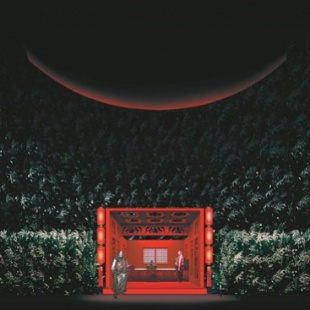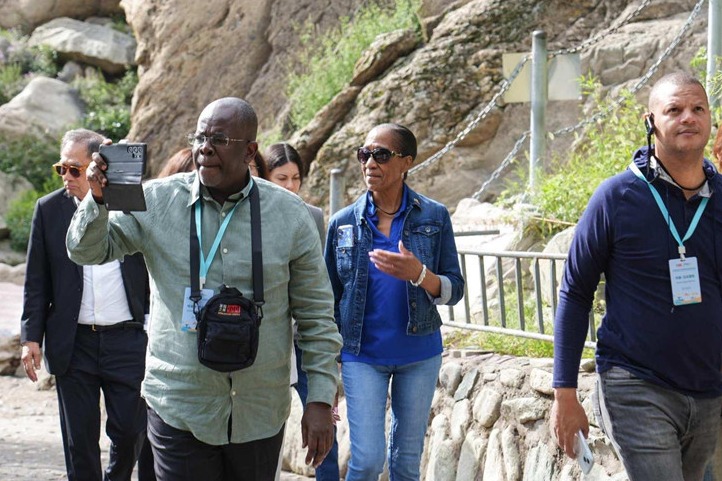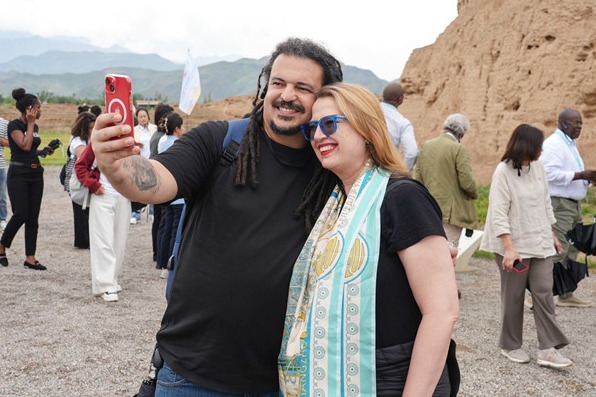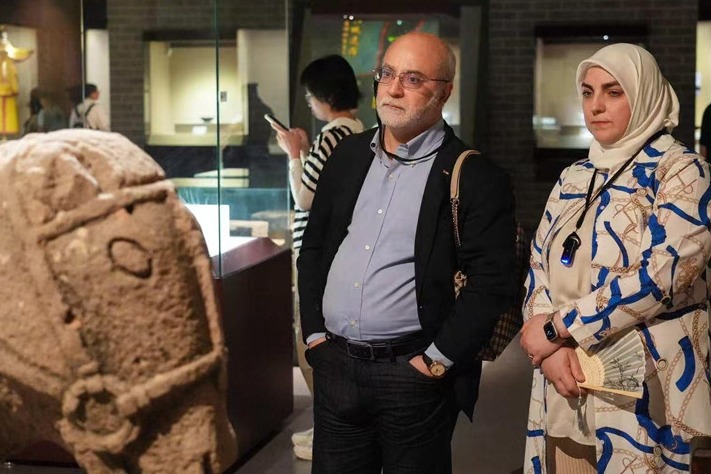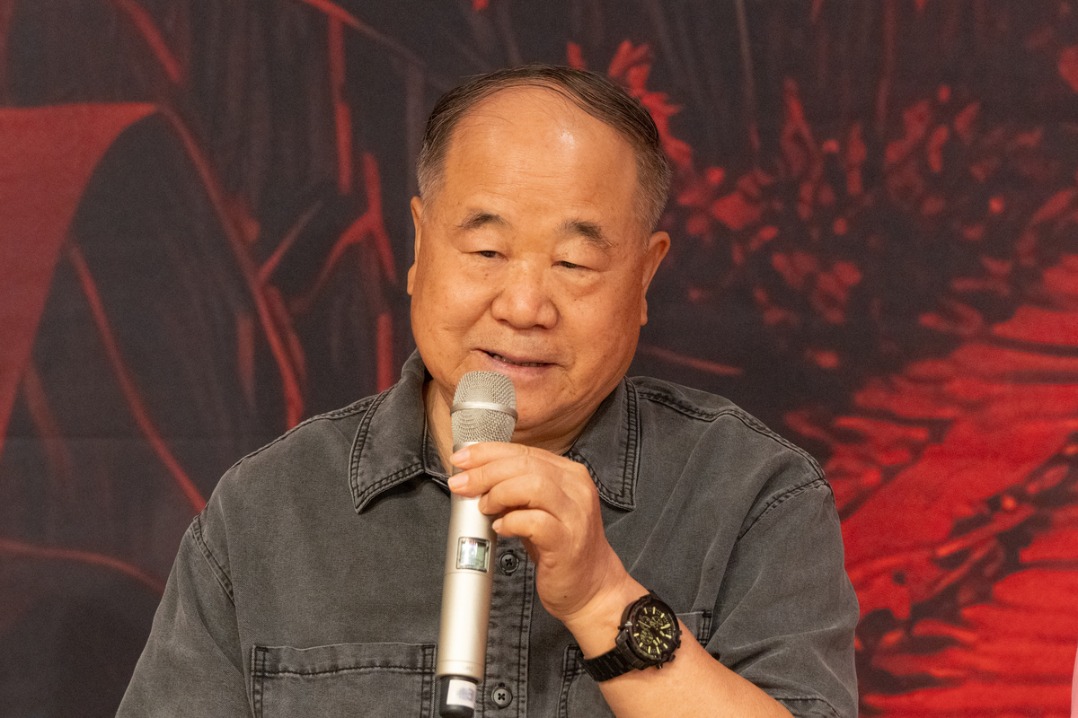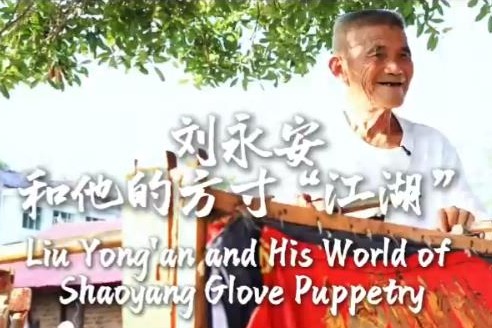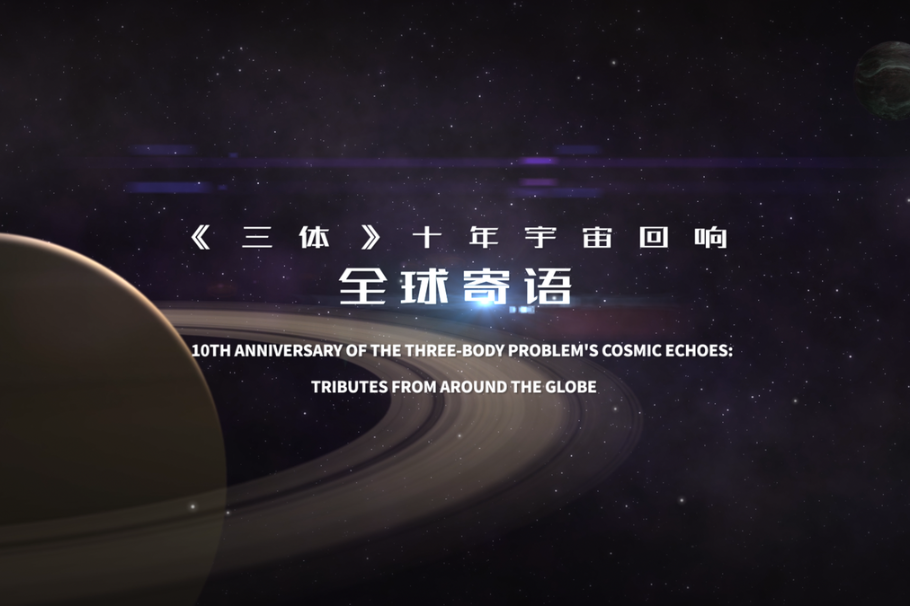Imagery transforms into opera

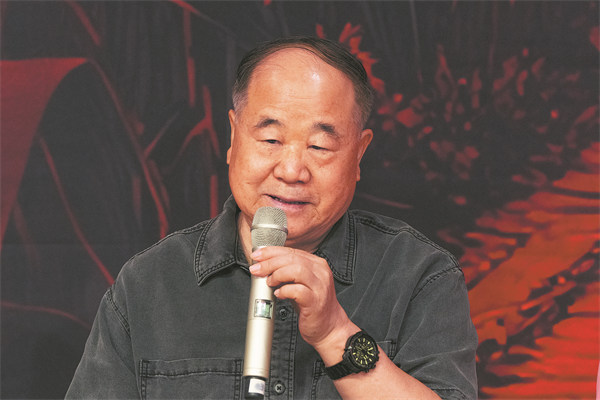
Mo Yan collaborated with composer Guo for this opera, taking Guo and other creative members to his hometown in Gaomi county, Shandong province. Mo Yan says that his hometown has nourished his spiritual world.
According to Guo, who is known for his compositions in symphonic music, operas, and chamber music, he listened to Shandong's folk music and traditional operas, and brought several large boxes of music scores, records, and research materials back to Beijing.
He immersed himself in the local music of Shandong, which he then adapted for the stage.
"The story of Red Sorghum is grand and majestic, so the overall musical style leans toward strength and robustness," Guo says.
He incorporated local styles such as Shandong Bangzi, Jiaozhou Yangge, and Gaomi folk songs into the score, adding traditional Chinese musical instruments, such as the suona (a double-reed woodwind instrument) and banhu (a bowed string instrument) to the orchestral arrangements. The combination of these regional elements with the techniques of grand opera creates a musical language that is symphonic and dramatic.
"Every character in the novel is vivid, so I designed music tailored to each character's personality, striving for the audience to recognize them instantly just through the music," Guo notes. "Music can push emotions to their extreme, like nuclear fission, causing the characters' emotions to explode."
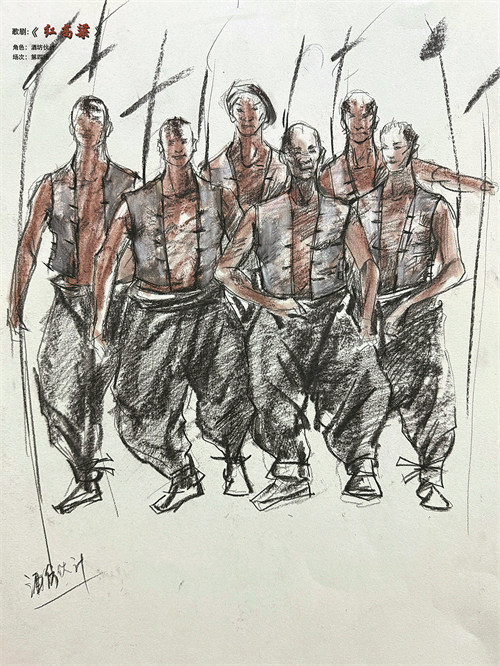
The opera will be conducted by Lyu Jia, the music director of the NCPA, with the China NCPA Orchestra and its chorus. In Red Sorghum, the character Jiu'er represents the awakening and struggle of Chinese women in the 20th century. She is a striking symbol of wild vitality breaking free from the war's feudal shackles, a role which will be performed by renowned soprano Song Yuanming and rising soprano star Wu Liere.
The role of Yu Zhan'ao, the bandit hero, will be played by tenors Guo Zizhao and Wang Chong, who will vividly shape his rebellious personality.


